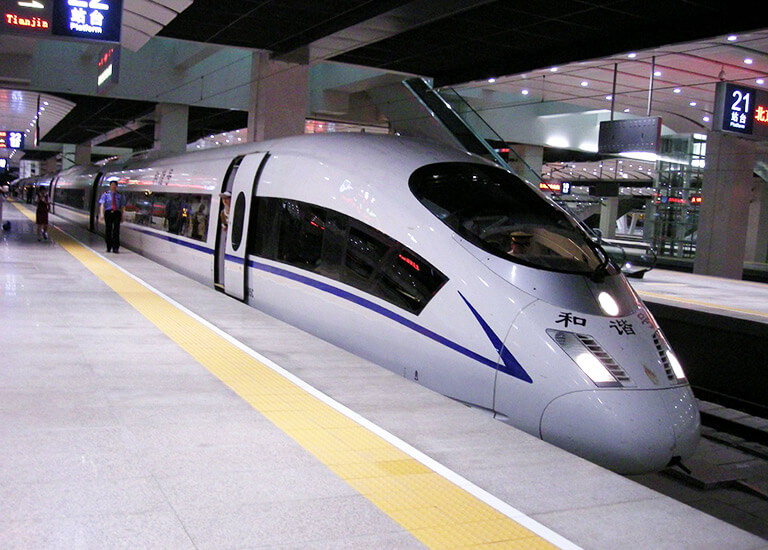On November 19th, we partake in our first Chinese high speed rail experience. We took the train C7005 from Guangzhou (广州) to Pinghu (平湖). I purchased the tickets on trip.com. The purchasing experiencing was quite easy, but we had a little issue when passing through the ticket gate. Our e-tickets were tied to our passports and the agent was not able to find our tickets on their system. Based on our Japan experience, we arrived with ample time to resolve the issue. I had to show my invoice and the ticket number for her to let us pass. However, on the train when the conductor came to check our tickets, our passports and our e-tickets were validated correctly.

The train was a C class express intercity train with a travelling speed of around 150km/h. It took us about an hour from Guangzhou to Pinghu and another 40 minutes of DiDi ride (Uber like service) to get back to Fenggang.
The next day (November 20th), we stayed at Fenggang to do some banking business and to visit Carol’s ancestral village and her father’s empty flat. At night, Carol’s cousin treated us to another excellent Cantonese dinner. Before we finished our dinner an old acquaintance dropped by. We knew them when they visited us in Canada. They ended up footing the bill. This world is such a small place.
Banking in China is … interesting. I will not go into details but make sure you have all your documents in place, and be prepare to wait a very long time to create accounts. Also be sure to inform the banking personnel that you are not a tax payer in China. If you don’t, things will not work out well for you. Another ironic thing is that in a world of smart phone payments, the bank only accept ¥20 cash for the cost of the debit / bank card, so make sure you have that handy. Be sure to remember how your name is spelt and make sure it matches with your WeChat account.
Make sure you choose a reputable bank that has the ability to transfer cash to and from other countries in the denomination of your choice. The first bank, DRC Bank (东莞农村商业银行股份有限公司), will only accept US dollars as the form of wire transfer, and a physical signature is required for the receipt of the transfer, so it is kind of pointless for a wire transfer. The second bank ICBC (Industrial and Commercial Bank of China – 中国工商银行) took a lot more effort to create the account, but is ultimately more flexible, and they have more branches through out the country. My conclusion is that there is not much trust between the head office of the banks and their retail branches. Everything has to be post-approved by head office and the people at the branches are simply data collectors and do not have much say or agility.
Below are the videos representing the two days.
